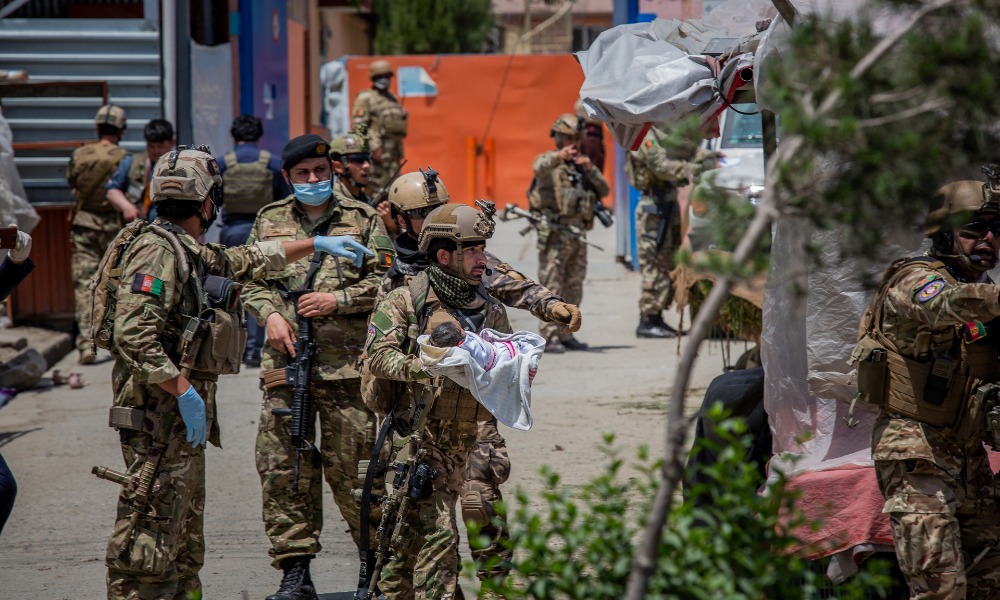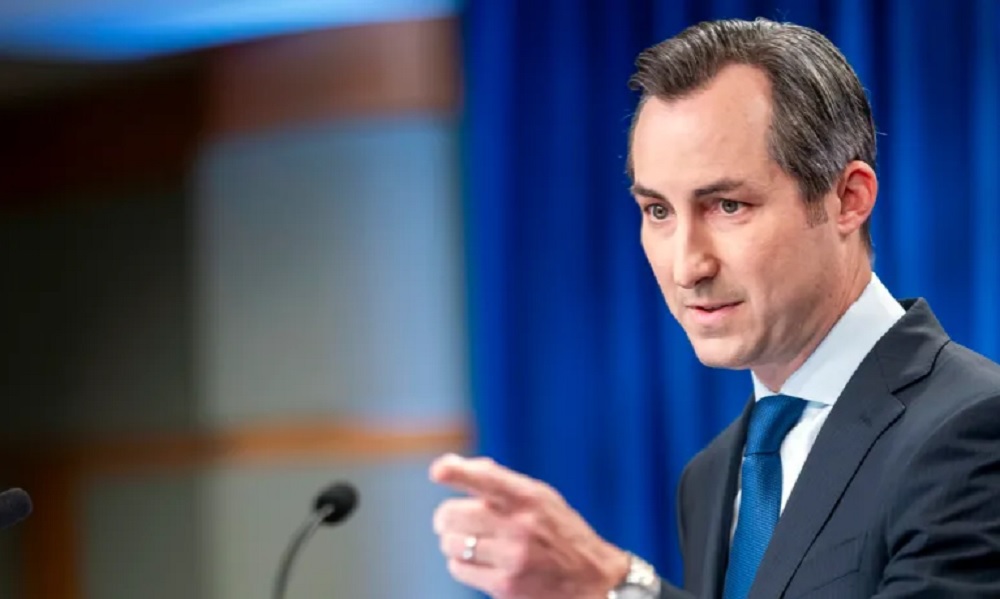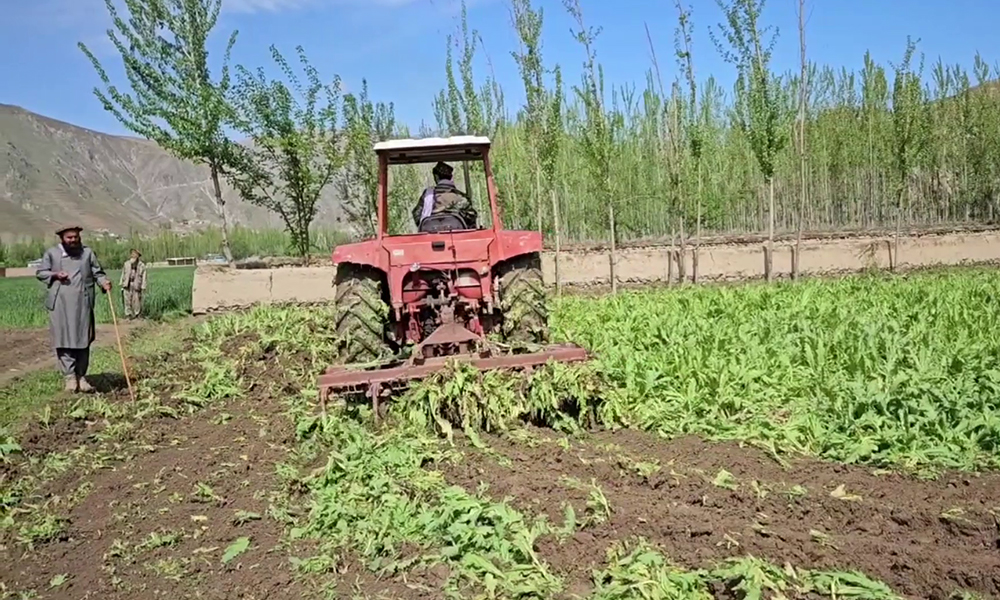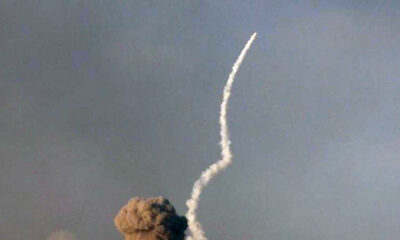Latest News
1399 a bleak year for Afghans as thousands died in the conflict

Afghans will on Saturday usher in 1400, a new year in the Persian calendar while remembering 1399 as having devastated thousands of families who lost loved ones to the war.
Celebrated by an estimated 300 million people around the world, Nawruz will be bittersweet for Afghans following yet another year scarred by attacks.
Hundreds of attacks against civilians and Afghan security forces were recorded in 1399 and a political settlement to the 20-year-old conflict has so far been elusive.
According to an Ariana News tally, at least 923 targeted assassinations took place in the last 365 days, including 11 journalists/media workers, 17 civil society activists, four provincial council members, and hundreds of government employees and security force members.
In addition, Ariana News’ tally found at least 649 people were wounded in targeted attacks.
Major attacks also rocked the country and devastated families in 1399.
Just six days into 1399, a Gurdwara, or temple used by Sikhs and Hindus, was attacked by Daesh militants, leaving 25 Sikhs dead and eight more wounded.
In June, Daesh militants struck again. This time attacking a maternity ward at Dasht-e-Barchi hospital. At least 24 people including women, newborn babies, and nurses were killed and 16 more were wounded in the attack.
Just an hour later, an explosion targeted a funeral ceremony in eastern Nangarhar province in which 24 people were killed and 68 others were wounded.
In October another major attack was carried out – also in Dasht-e-Barchi. But this time targeting students at an educational center. At least 24 people including a security guard and students were killed and 57 wounded. Daesh claimed responsibility for the attack.
Just days later, on November 2, Daesh militants attacked Afghanistan’s largest educational institution – Kabul University. At least 22 people were killed and 52 others injured in the attack.
In addition to these major complex attacks, insurgents also stepped up targeted attacks and assassinations against individuals or small groups of specific people – either by shooting them or placing magnetic IEDs against vehicles their targets were traveling in.
Even Afghanistan’s First Vice President Amrullah Saleh was targeted in a magnetic IED explosion. Saleh did however survive but sustained minor injuries.
Military operations
Meanwhile, the Ministry of Defense says that Afghan forces have carried out more than 20,000 operations against the Taliban and other militant groups during this solar year.
In this time, the Taliban also attempted to take control of eight provinces and 132 districts, the Afghan Army said. According to the military, eight districts were retaken from the Taliban during the operations.
However, clashes between government forces and militant groups took a heavy toll on civilians.
According to the UN and Afghanistan Human Rights Commission’s tallies, at least 2,958 civilians were killed and 5,542 more wounded in clashes and bomb blasts during the last 365 days.
The reports stated on average eight people have been killed and 15 others wounded on a daily basis this solar year.
The UN blamed the Taliban for 53 percent, the government, and foreign forces for 15 percent, Daesh for five percent, and unknown armed men for 25 percent of civilian casualties.
On the other hand, the foreign troops stationed in Afghanistan did not suffer any casualties following the signing of a peace deal between the US and the Taliban in February last year.
The Afghan forces, however, suffered extremely heavy casualties in the past solar year with more than 12,000 Afghan soldiers reportedly having been killed.
The Afghan military claimed that 18,288 Taliban insurgents were in turn killed during clashes in the past 365 days.
Latest News
US asks IEA to ensure Afghan soil not used by terrorists

The US State Department on Thursday asked the Islamic Emirate of Afghanistan (IEA) to ensure that Afghanistan is not used to support terrorist groups, movement of terrorists or acts of terrorism.
A State Department spokesman told Geo News that Washington has “been very clear that we will judge the Taliban (IEA) by what they do, not what they say.”
“The Taliban (IEA) wants international legitimacy. This requires the Taliban (IEA) to meet their commitments to the international community,” the official said.
The spokesperson said the most enduring interest for the US in Afghanistan was to ensure that it never again became a safe haven for terrorists, especially for those who wished harm to the US or its partners or allies.
“We are in regular communication with Pakistani leaders as a part of our partnership on counterterrorism issues. We continue to discuss Afghanistan in detail, including through our annual counterterrorism dialogue and other bilateral consultations,” the official said.
Islamabad has time and again urged Kabul to take meaningful action against terrorists using Afghan soil to launch attacks inside Pakistan.
However, the IEA has repeatedly rejected claims of militant groups in the country and have said they will not allow any group to threaten a country from Afghanistan.
On Tuesday, the Pakistan Army’s top commanders were briefed on how terrorist groups operating from Afghanistan pose a threat to regional and global security, besides acting as proxies against Pakistan and its economic interests, especially the China-Pakistan Economic Corridor (CPEC).
A day ago, the Inter-Services Public Relations (ISPR) said security forces had killed seven terrorists trying to infiltrate the Pakistan-Afghanistan border in the North Waziristan district.
In a statement, the military’s media wing had said the security forces on April 16 had detected a movement of a group of seven terrorists near the border in the Spinkai area of Ghulam Khan in the tribal district, Pakistan’s The News reported.
Latest News
Over 6,000 acres of land cleared of poppies in Badakhshan

Badakhshan Police Command says it has cleared more than 6,000 acres of poppy fields in northern Badakhshan province.
The anti-narcotics department of Badakhshan Police Command says that since the beginning of the campaign to destroy the poppy fields in this province, they have cleared more than 6,000 acres of land.
According to these officials, poppies have however been planted in more than 10 districts this year.
The anti-narcotics department of the Badakhshan Police Command says that the campaign to destroy the poppy plantations started two months ago and continues.
According to the officials, during this period, 6,300 acres of land has been cleared.
Some of the farmers whose fields were destroyed say that poppy is more profitable than other agricultural products, but now that their land has been cleared, they want alternative crops.
According to the officials, Kishim, Argo, Darayimand and Jurm districts are among the districts where poppies are cultivated.
Latest News
MSF ‘deeply concerned’ over new phase of deportations of Afghans from Pakistan

Médecins Sans Frontières (MSF) said Wednesday it was deeply concerned for the rights and welfare of Afghan refugees in Pakistan in the wake of the recent announcement by Islamabad that it plans to start Phase Two of the deportation campaign.
Pakistan is home to an estimated 3.7 million Afghans, and a reported 500,000 have crossed the border so far.
Many Afghans living in Pakistan have been there for decades and have spent more time in the country than their country of origin, without any legal recourse to remain in the only place they can effectively call “home”.
For many Afghans, Islamabad’s “repatriation” campaign means packing up their belongings and carrying them on a horse, cart, car and bus and traveling en masse to a country that is already struggling with widespread poverty, inadequate health services and increased restrictions on women, MSF said in a statement.
The second phase of the deportations leaves an estimated 800,000 Pakistan-issued Afghan Citizen Card (ACC) holders vulnerable to return, while phase three is expected to result in the further deportation of UNHCR-issued Proof of Registration (PoR) card holders, MSF said.
MSF first started working in Pakistan in 1986, and today provides much-needed medical care to people in Balochistan, Khyber Pakhtunkhwa and Sindh provinces.
The Islamic Emirate of Afghanistan (IEA) and UN agencies estimate that more than half a million people have been deported from Pakistan or voluntarily returned to Afghanistan in the past six months.
The United Nations High Commissioner for Refugees said last month that nearly two million Afghan refugees are living in Pakistan and that the agency needs $368 million this year to assist these people.
-

 Sport5 days ago
Sport5 days agoACL draw to be broadcast live on ATN channels
-

 Sport4 days ago
Sport4 days agoACL fever grows as fixtures finalized
-

 World4 days ago
World4 days agoUS will not take part in any Israeli retaliatory action against Iran
-

 Latest News4 days ago
Latest News4 days agoOver 50 people dead in traffic accidents over Eid
-

 Latest News4 days ago
Latest News4 days agoUS identifies Kabul airport suicide bomber
-

 Business4 days ago
Business4 days agoAfghanistan-Kazakhstan chamber of commerce opens in Herat
-

 Latest News4 days ago
Latest News4 days agoGood rains enable DABS to increase power production in Kabul
-

 World3 days ago
World3 days agoIsraeli military vows response to Iran attack as calls for restraint mount
























